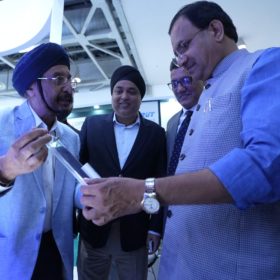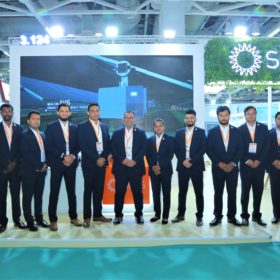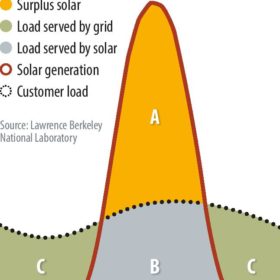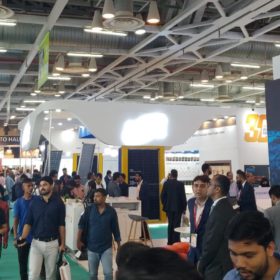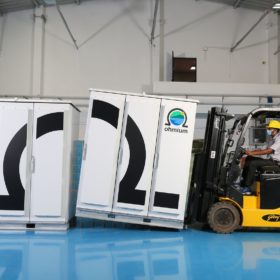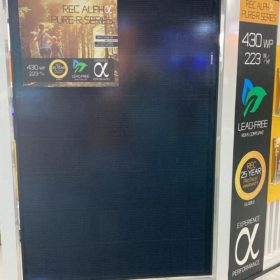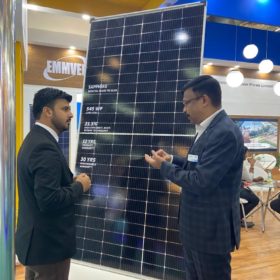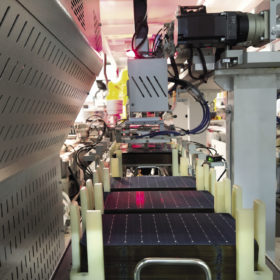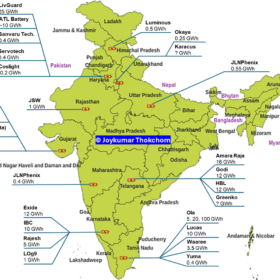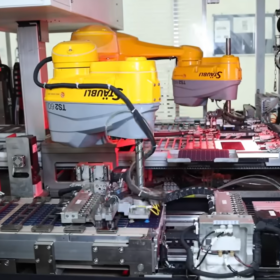Gujarat tenders up to 1.2 GW of solar projects
Gujarat Urja Vikas Nigam Ltd (GUVNL) has issued a tender to procure up to 600 MW of solar power from Khavda solar park-based projects and an additional 600 MW under the Greenshoe option. Bidding closes on November 15.
Premier Energies launches India’s first M10 bifacial solar cell
Premier Energies has become the nation’s first solar manufacturer to launch a bifacial monocrystalline silicon PERC (passivated emitter rear contact) solar cell based on the 182×182 mm2 format. The cell boasts an efficiency of up to 23.2%.
Solis eyes growth in utility-scale solar segment
The Chinese inverter major has showcased its 255K-Plus three-phase inverter for utility-scale solar applications in India. The new inverter is compatible with 500+ W bifacial modules.
The long read: Netting true value from batteries
Net metering reforms in the US are a missed opportunity to harness residential battery storage, argue researchers from the Lawrence Berkeley National Laboratory. Compensation rules for residential rooftop solar are evolving toward a model that encourages customers to use battery storage to maximize solar self-consumption. However, is this a good thing? Galen Barbose, Sydney P. Forrester, and Chandler Miller investigate.
Renewable Energy India Expo 2022: Key takeaways
This past week saw the Renewable Energy India Expo come to Greater Noida, on the outskirts of New Delhi, for its 15th edition. pv magazine spent three days navigating the packed halls of the exhibition and conference, and has compiled these takeaways.
Ohmium, Amp Energy collaborate on 400 MW of green hydrogen
Renewables developer Amp Energy India will deploy Ohmium’s proton exchange membrane (PEM) electrolyzers for mid-scale commercial and industrial projects with an individual capacity of 25 MW or smaller.
REC unveils all-black heterojunction solar panel for rooftops
At Renewable Energy India Expo 2022, Norwegian solar panel specialist REC has unveiled the Alpha Pure-R all-black heterojunction panel delivering a power output of up to 430 W. The panel measures less than 2 square meters in size and can generate 223 watts/m², which makes it ideal for residential rooftops.
Adani Green switches on 600 MW wind-solar hybrid power plant in Rajasthan
Adani Green has commissioned the world’s largest co-located wind-solar hybrid power plant. The plant comprises 600 MW solar and 150 MW wind power capacity in Rajasthan. It benefits from 25-year power purchase agreements with the Solar Energy Corp. of India at INR 2.69 ($0.033)/kWh.
Emmvee introduces 545 W glass-to-glass bifacial solar module
Karnataka-based Emmvee has unveiled Sapphire series glass-to-glass bifacial modules with power outputs ranging from 530 W to 545 W. The modules are built with 144 mono PERC half cells and ten busbars.
Adani targets 10 GW of polysilicon-to-solar module capacity by 2025
India’s Adani Solar will expand its PV cell and module manufacturing capacity to 10 GW per year by 2025, with backward integration up to the polysilicon stage.

